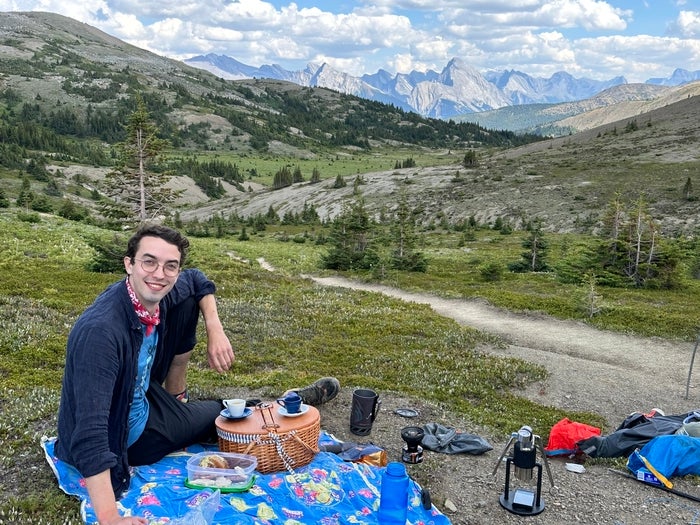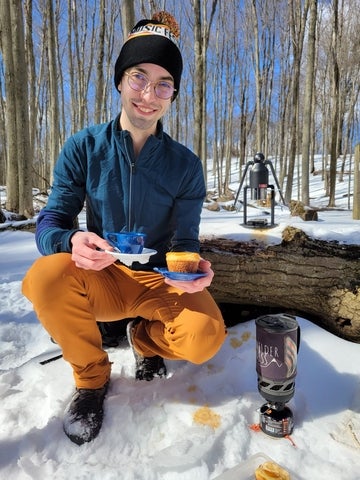Jacob Skitsko is a second year master’s student in Combinatorics & Optimization. We sat down to talk to him about why he chose the University of Waterloo, and how he spends his time on campus and outside of it.
Why did you choose Waterloo?
Having an entire department for combinatorics and optimization was very attractive: the department represents a unique combination at the intersection of math and computer science. I did my undergraduate degree in computer science at the University of Alberta, and being able to explore techniques to tackle difficult problems here at Waterloo while being surrounded by people in very closely related areas is an excellent opportunity. This level of immersion is hard to find elsewhere.

What does a typical day look like for you?
Most days I’ll go for a run, and I enjoy brunch whenever I’m able to. I work from the office most days, because being able to talk with my peers and professors – and being more productive – is usually a good idea for me. Typically, I meet once a week with my supervisor, Dr. Kanstantsin Pashkovich, to discuss my research progress on discrete optimization and game theory. I also TA a bit over five hours a week – mostly grading undergraduate work.
When I stop for a break or a treat, I like to go cafes like Smile Tiger or Café Pyrus, which are quite cute to spend time in. Vincenzo’s, a local Italian grocery store, also has a distractingly large number of goodies.

What do you do for fun?
I’m fairly enthusiastic about trail running, and the outdoors in general. Running with (and without) people to explore the KW area, and going backpacking, are fantastic activities. Every season is a good outdoors season, and almost anywhere can be a picnic spot if you’re determined enough!
I’ve also been enjoying baking and bringing pastries to the outdoors. I carry a light(ish) manual espresso machine with me when I hike, and am working on brewing the perfect cup of espresso on the trail. At some point I’d like to build my own espresso machine and see how much information at different points of the machine (pressure, flow rate, etc) I can detect and tweak.
Do you have any advice for incoming graduate students?
Do activities with other grad students! Join intramurals, make cookies (and give them to me), eat lunch with people, and socialize! It helps to make connections and be friendly with people in both academic and non-academic contexts. Besides, it’s just generally pleasant (especially if you give me cookies).
This profile is the first in a series highlighting Faculty of Mathematics graduate students.